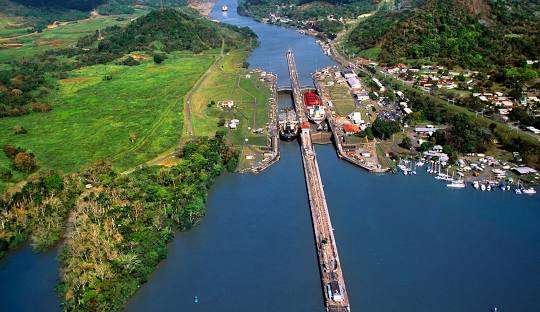The Suez Canal achieved the highest monthly revenues in its history in November at $854.7 million, an annual increase of 20.3%, according to a statement issued Thursday by the Canal Authority.
The Egyptian Canal also witnessed the largest monthly net tonnage of 135.5 million tons, an increase of 8.2% year-on-year, while the number of ships crossing the canal increased by 4.3% to 2,264 in both directions.
The canal is considered the shortest shipping route between Europe and Asia, while its revenues are one of the main sources of hard currency in Egypt.
On the other hand, Panama Canal Lack of rain has dried up a major lake , disrupting shipments through one of the world's most important waterways. The resulting delays have already disrupted global trade, forcing some ships to make long voyages around South America.
The Suez Canal will eventually receive a much larger number of ships as a result of the crisis in Panama.
Global trade is witnessing strong activity with an increase in demand for goods and raw materials to compensate for the pent-up demand left by the economic closures during the pandemic, which is causing unprecedented pressure on supply chains.
Egypt decided to raise the transit fees for ships in the Suez Canal between 5% and 15%, as of mid-January. The 5% increase will include dry bulk cargo ships, general cargo ships, and ro-ro ships, while the 15% increase will include crude oil tankers, petroleum derivatives tankers, and liquefied gas. , tankers of chemicals and other liquid materials, container ships, car carriers, passenger ships, and special floating units.
The Authority said that it will exempt container ships coming directly from northwestern European ports and heading directly to Far Eastern ports, from the targeted increase.














